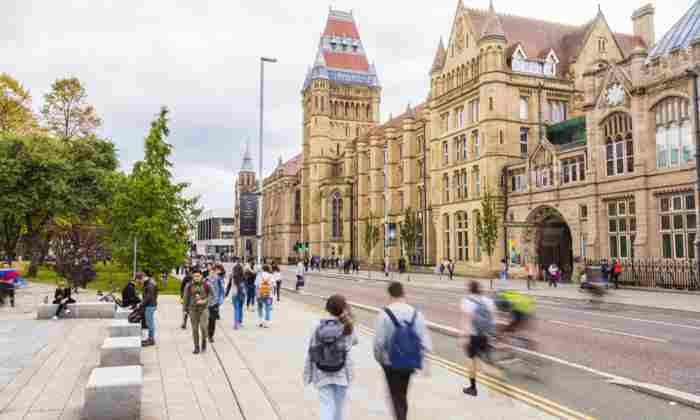New University report explores academic privilege and differential attainment
22 May 2025
New research reveals key barriers affecting student attainment and outlines steps the University is taking to close awarding gaps and create a more inclusive academic environment.

We have launched our ‘The Game of Academic Privilege’ report, after conducting extensive research into differential attainment.
Differential attainment in higher education is a sector-wide issue, and it refers to the variation in attainment between groups of students who share protected characteristics (such as religion, ethnicity and ability) and those who do not share the same characteristic. For example, those with and those without disabilities.
Degree awarding gaps are often used as markers of differential attainment, and these gaps can highlight where systematic inequalities exist and need to be addressed. For example, the report found a pronounced gap between students of different ethnic backgrounds, with Black, Pakistani and Bangladeshi students less likely than White students to achieve a top degree (First or 2:1 classification).
123 participants were interviewed for the report, of which 91 were students. Following interviews with students, academic and university support services staff and analysis of archive and central data, the report identified key areas where students face disparities in their academic performance and overall university experience at our university.
For many students, especially those from lower socio-economic backgrounds, financial struggles impact their well-being and their academic performance, so much so that students feel forced sometimes to take gap years or work excessive hours while trying to balance their studies. Students reported the on the negative impact of physical spaces, particularly for neurodivergent students.
A lack of representation was reported within the University, particularly among Black and Asian student groups - especially when it comes to curricula and staff they interact with. A lack of diversity can block students who aspire to pursue an academic career, while also impacting their sense of belonging at the University, which is crucial for students to thrive.
International students also reported issues with seeking help from the University due to cultural taboos, while studying in a second language, balancing caring responsibilities and dealing with sponsorship obligations also pose challenges. According to the report, the curricula at Manchester are seen by some as Eurocentric, leaving underrepresented groups feeling disadvantaged.
Professor Gabrielle Finn, Associate Vice-President for Teaching, Learning and Students authored the research, ‘The Game of Academic Privilege: An Exploration of Differential Attainment at The University of Manchester’, alongside Dr Jenny Twyford, Professor Adam Danquah and Dr Asieh Shomali.
Professor Finn said: “We have a responsibility to ensure everyone who learns with us can progress to the best of their ability, regardless of socioeconomic status or background and we’lll be working hard with colleagues to make sure that we are taking practical action in response to these findings.
“Closing the gap in differential attainment is a key priority for our University, but it is undoubtedly also an issue that needs collective action from the wider higher education sector in order to make effective progress.
“This report will help us andall higher education stakeholders to better understand how to support the attainment, progression and continuation of students, and remove the institutional barriers holding students back from academic success.”
Dr Simon Merrywest, Executive Director for the Student Experience, said: “This report is essential reading for all members of our university community that shines a light on many important issues. That we may feel uncomfortable reading its conclusions will I hope serve to drive further collective actions towards ensuring genuinely equal opportunities for attainment, progression, and continuation of all our students. ”
The research will be used to inform a series of practical interventions aimed at closing awarding gaps and improving the overall student experience.
There are many examples of how we are taking action. Financially, we have increased the bursary amount provided through the Manchester Bursary (MB) and the Undergraduate Access Scholarship (UAS), to help students meet the increased cost of living. The University provided over £11 million for bursaries and scholarships last year.
To support students with a sense of belonging, our Professional Services teams and Faculties are working on a variety of initiatives, including the Manchester 10/10 programme. Academic and personal skills development is at the heart of several actions working to improve confidence, including the provision of bespoke additionalactivity for some BAME student success initiatives.
Involving the student voice underpins the University’s strategy to close the differential attainment gap, working closely with its Students’ Union to ensure the thoughts of BAME student communities are amplified and incorporated. A new Student Voice Strategy, co-created with the Students’ Union, is centred on empowerment, accountability and authentic engagement.
The Manchester Access Programme also helps local students from underrepresented backgrounds prepare for university. The Faculty of Science and Engineering (FSE) is also working to increase the Student Partner Intern (SPI) scheme to include the neurodiverse student community, with the aim of community building and improving its welcome offer.
More information
- Read the summary of our ‘The Game of Academic Privilege’ report
- Read the full report
- Watch the Townhall with Duncan Ivison: What does student success look like?
